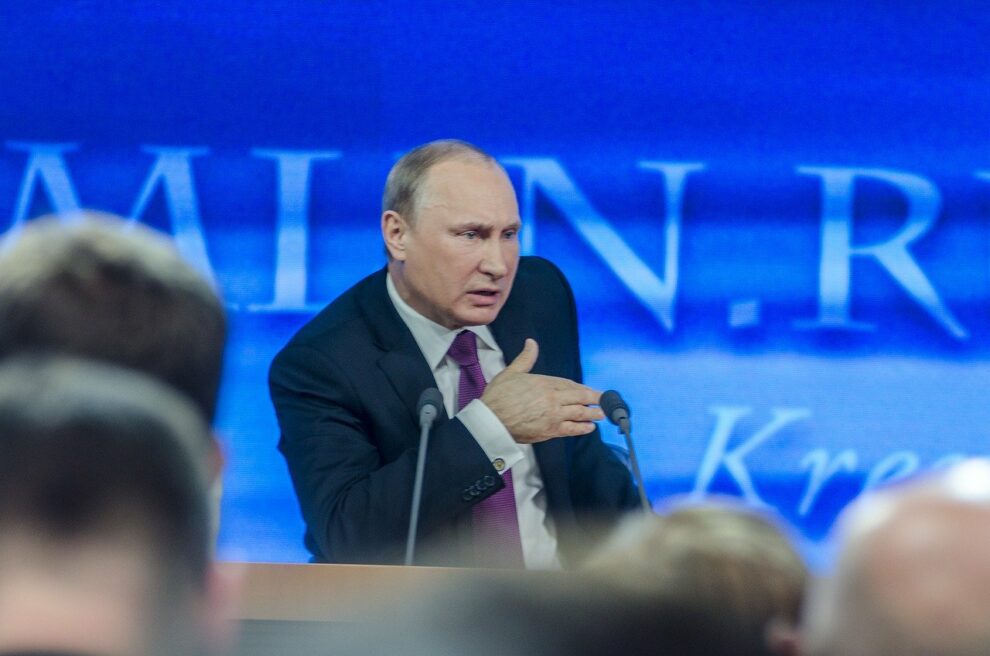The Kremlin on Monday said it was exiting a major agreement to facilitate Ukraine grain exports hours after drones struck the only bridge connecting Russia’s mainland to the annexed Crimea peninsula.
Moscow, which has for months complained about the implementation of the grain pact, said the attack on the Kerch bridge had nothing to do with its withdrawal from the deal designed to avoid food shortages in vulnerable countries.
“The grain deal has ended. As soon as the Russian part (of the agreements) are fulfilled, the Russian side will immediately return,” said Kremlin spokesman Dmitry Peskov.
But President Volodymyr Zelensky said Ukraine was prepared to keep exporting grain via the Black Sea despite Russia’s exit from the deal.
“We are not afraid. We have been approached by companies that own ships. They said that they are ready” to continue shipments, Zelensky said.
Moscow’s announcement came hours after drones hit the Kerch bridge, a key supply line for Russian forces in the south of Ukraine.
Kyiv’s navy and SBU security service carried out the “special operation” using seaborne drones, a security service source told AFP.
Russian authorities said a civilian couple was killed and their daughter wounded in the attack on the bridge, which was also damaged last year in a blast Moscow blamed on Kyiv.
– Crimea bridge blast –
Local officials said traffic across the bridge had been halted and encouraged holidaymakers stranded in Crimea to drive home through occupied Ukraine.
Russian President Vladimir Putin condemned a “senseless crime” in televised remarks, vowing a “response” and calling for tighter security at the bridge.
Over the last year, the Black Sea Grain Initiative has enabled the export in cargo of more than 32 million tonnes of Ukrainian grain.
But those transports have come to a halt because of Russia’s refusal so far to renew the deal, which was brokered by the UN and Turkey.
“The applications have not been approved by all parties,” said a statement from the Joint Coordination Centre (JCC) that oversees the agreement. “No new ships have been approved to participate since 27 June.”
Putin has repeatedly threatened to pull out of the arrangement, arguing that elements of the deal allowing the export of Russian food and fertilisers have not been honoured.
Moscow had notified Turkey, Ukraine and the UN that it was against extending the deal, Russian news agencies reported Monday, citing the foreign ministry.
UN Secretary General Antonio Guterres said hundreds of millions of people facing hunger around the world would “pay the price” for Russia’s withdrawal.
EU chief Ursula von der Leyen condemned a “cynical” decision by Moscow.
Guterres added that Russia’s decision would not stop the United Nations’ efforts to “facilitate the unimpeded access” to global markets of food and fertilisers from Ukraine and Russia.
– Global supplies –
According to data from the JCC, China and Turkey are the main beneficiaries of the grain shipments, as well as developed economies.
The deal has helped the World Food Programme bring relief to countries facing critical food shortages such as Afghanistan, Sudan and Yemen.
The news had a limited impact on international wheat prices, which are down by nearly a quarter from one year ago.
Guterres has been working hard to get the deal renewed and supports removing hurdles to Russia exporting its fertilisers.
Contrary to the Kremlin’s statements, Turkish President Recep Tayyip Erdogan appeared optimistic about the prospects of the grain deal being maintained.
“I think that despite today’s statement, my friend Putin wants to continue the agreement,” which is due to expire at 2100 GMT on Monday.
– Fierce fighting –
Meanwhile, Ukraine was pushing ahead with its counteroffensive, with Kyiv on Monday saying its forces had retaken several square kilometres of territory around the eastern city of Bakhmut, which Russian forces seized in May.
Bakhmut, once home to 70,000 people and known for its sparkling wine and salt mine, has been destroyed by the longest and bloodiest battle of the conflict.
Kyiv last month began its highly anticipated fightback against entrenched Russian troops after stockpiling Western weapons and building up its offensive forces.
But it has acknowledged slow progress and called on the United States and other allies to provide more long-range weapons and artillery.
“People should understand what price we pay for (advancing),” a commander on the ground, “Bulat”, told AFP. “There are a lot of enemies. We need time to grind them down.”
